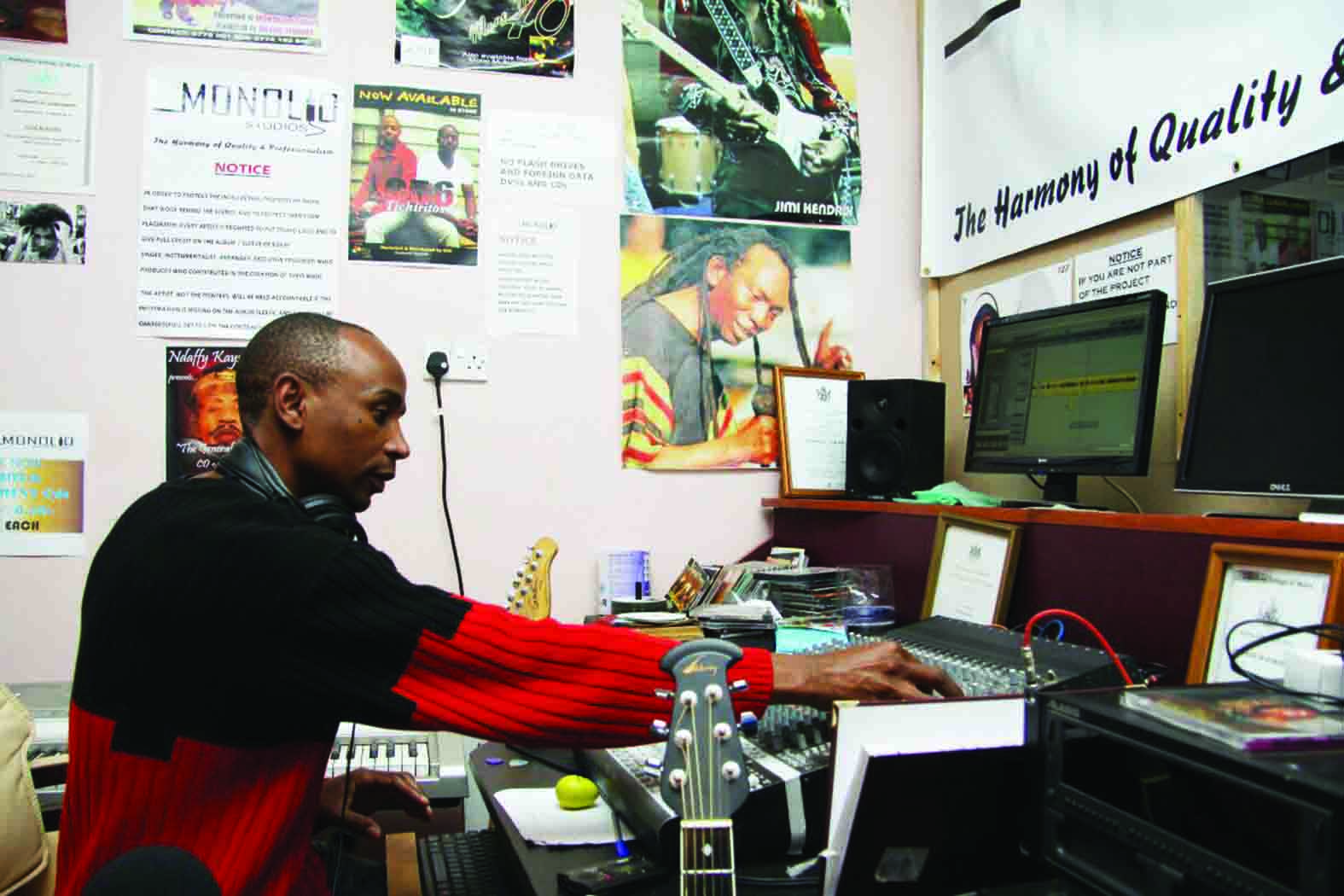
RENOWNED multi-instrumentalist-cum-music producer Clive Mono Mukundu did some soundtracks for the award-nominated Jamaican documentary titled The Price of Memory which explores the legacy of slavery in Jamaica by tracing the movement for slavery reparations catalysed by Queen Elizabeth II’s visit to Jamaica in 2002.
BY STAFF REPORTER
The 83-minute documentary directed by Karen Marks Mafundikwa features Queen Elizabeth II, Ras Lion, Michael Lorne, Sam Clayton, Philmore Alvaranga, Douglas Mack and Barbara Blake Hannah. Mukundu told NewsDay yesterday that Mafundikwa was in Zimbabwe during the film’s production and the Jamaican music producers Sly Dunbar and Robbie Shakespear were supposed to send her the remaining music.
“The producers failed to send her the remaining music before the deadline, but her husband told her not to worry since there was someone who understood reggae and he introduced me to her,” he said. “She listened to my reggae riddims and said it was proper reggae suitable for her film. After the paperwork, I gave her the music. I created some more incidental music for some of the scenes in the film.”
The film traces Queen Elizabeth II’s visit to Jamaica where she attended the Carribean island country’s Golden Jubilee celebrations. She is then petitioned by a small group of Rastafari for slavery reparations.
It explores the impact of slavery on independent Jamaica, following the filmmaker on a journey during which the question of reparations reaches Parliament in both Jamaica and the United Kingdom. Filmed over 10 years, the film was described as a compelling exploration of the enduring legacies of slavery and the case for reparations.
Meanwhile, Mukundu bemoaned the socioeconomic hardships in the country which he said forced fans to use their money for basic necessities rather than music. He said apart from the lean economic spell, piracy was the biggest challenge plaguing the local music industry.
“Besides piracy, the other thing affecting us is the bad economy,” he said.
- Chamisa under fire over US$120K donation
- Mavhunga puts DeMbare into Chibuku quarterfinals
- Pension funds bet on Cabora Bassa oilfields
- Councils defy govt fire tender directive
Keep Reading
“Who buys a CD or goes to a gig when he does not have money for bread?”
He challenged upcoming artistes to pay attention to the quality of their work “If upcoming musicians want to succeed, they must realise that talent alone is not enough to make a big name in the music industry, but the quality of music is the key sense,” he said. “Some types of music will give you fame without money.”
Mukundu said he was currently recording artistes independently although he occasionally got international jobs.
“I have already produced a track for Luciano’s collaboration with Jah Prayzah” he said.
“I have done music for a just-released Jamaican documentary called The price of Memory. I have produced artistes from Sudan, Malawi, Mozambique, South Africa and Zambia, and some are just bringing their music to me for mixing and mastering. So many doors are opening and I am expecting more doors to open.











